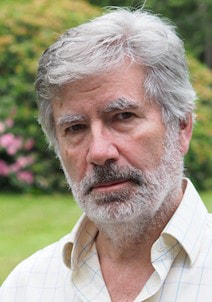EUROPEAN SOCIETY FOR RESEARCH IN ADULT DEVELOPMENT 2023 CONFERENCE
12th - 14th May 2023
University of Greenwich, London, UK
This conference is for all scholars and practitioners who are engaging in research and practice that is advancing our understanding of adult development. The event covers topics from all branches of the behavioural and social sciences, and from practitioners working with adults to enhance development and personal growth. Research studies using quantitative methods, qualitative methods and mixed-methods designs, as well as theoretical reviews, are all encouraged.
View full conference programme, including abstracts
In addition to the above key themes, submissions are also invited that are relevant to adult development in other domains.
VENUE: Greenwich University Campus, Stockwell Street, London, SE10 9DB, United Kingdom
Accommodation: conference_accommodation_options_2023_v2.pdf
SPEAKERS AND ATTENDEES CAN ATTEND ONLINE OR IN-PERSON
12th - 14th May 2023
University of Greenwich, London, UK
This conference is for all scholars and practitioners who are engaging in research and practice that is advancing our understanding of adult development. The event covers topics from all branches of the behavioural and social sciences, and from practitioners working with adults to enhance development and personal growth. Research studies using quantitative methods, qualitative methods and mixed-methods designs, as well as theoretical reviews, are all encouraged.
View full conference programme, including abstracts
In addition to the above key themes, submissions are also invited that are relevant to adult development in other domains.
VENUE: Greenwich University Campus, Stockwell Street, London, SE10 9DB, United Kingdom
Accommodation: conference_accommodation_options_2023_v2.pdf
SPEAKERS AND ATTENDEES CAN ATTEND ONLINE OR IN-PERSON
CONFERENCE CHAIR
Dr Oliver Robinson, University of Greenwich
ORGANISING COMMITTEE
Dr Oliver Robinson, University of Greenwich
Nick Shannon, Management Psychology Ltd.
Prof Teresa Maria Sgaramella, University of Padova
Erin Collins, University of Greenwich
Emily Wright, Goldsmiths College, University of London
Dr Colleen Doyle, Maynooth University
CONFERENCE SCHEDULE
12th May
1.30pm to 2pm Registration
2pm to 5pm – Pre-conference workshop: Nick Shannon – dialectical thinking workshop
6pm – Pre-conference drinks and informal meeting
13th May
9am to 9.30am - Registration
9.30am to 5pm – Conference Sessions, including interview with keynote speaker
8pm – Conference social event (paid for at the event)
14th May
9am to 5pm – Conference Sessions, including lecture by keynote speaker
CONFERENCE FEES
· Early Bird Conference Fee (includes pre-conference workshop): 175€/£155 - Pay by Friday April 21st.
· Full Conference Fee (includes pre-conference workshop): 200€/£175
· Student Fee: 75€/£65
· Pre-Conference Workshop Fee: 30€/£25
· Listening to keynote talk / interview: 30€/£25
University of Greenwich staff and students get a 50% discount on the conference fee.
SUBMISSION DEADLINES
14th February, 2023 @ 1 pm GMT: Deadline for submission of proposals
28th February 2023: Notification for acceptance of proposals
SUBMISSION PROCESS
Please submit proposals as pdf or Word document to the following e-mail address: [email protected]. Please put "ESRAD symposium abstract 2023" into the subject heading.
PROPOSAL FORMAT
Submissions may be oral presentations, workshop/discussion sessions, or poster presentations. Both theoretical and empirical proposals are welcome. Proposals should not exceed 300 words (excluding title, tables, graphs and references). They should be submitted under the following structure: 1. Title 2. Authors 3. Area of interest 4. Type: Oral presentation, workshop/discussion session or poster 5. Background and Aim 6. Method (if theoretical paper; approach to theoretical analysis) 7. Results (if theoretical paper; key conceptual points) 8. Discussion and Implications.
Dr Oliver Robinson, University of Greenwich
ORGANISING COMMITTEE
Dr Oliver Robinson, University of Greenwich
Nick Shannon, Management Psychology Ltd.
Prof Teresa Maria Sgaramella, University of Padova
Erin Collins, University of Greenwich
Emily Wright, Goldsmiths College, University of London
Dr Colleen Doyle, Maynooth University
CONFERENCE SCHEDULE
12th May
1.30pm to 2pm Registration
2pm to 5pm – Pre-conference workshop: Nick Shannon – dialectical thinking workshop
6pm – Pre-conference drinks and informal meeting
13th May
9am to 9.30am - Registration
9.30am to 5pm – Conference Sessions, including interview with keynote speaker
8pm – Conference social event (paid for at the event)
14th May
9am to 5pm – Conference Sessions, including lecture by keynote speaker
CONFERENCE FEES
· Early Bird Conference Fee (includes pre-conference workshop): 175€/£155 - Pay by Friday April 21st.
· Full Conference Fee (includes pre-conference workshop): 200€/£175
· Student Fee: 75€/£65
· Pre-Conference Workshop Fee: 30€/£25
· Listening to keynote talk / interview: 30€/£25
University of Greenwich staff and students get a 50% discount on the conference fee.
SUBMISSION DEADLINES
14th February, 2023 @ 1 pm GMT: Deadline for submission of proposals
28th February 2023: Notification for acceptance of proposals
SUBMISSION PROCESS
Please submit proposals as pdf or Word document to the following e-mail address: [email protected]. Please put "ESRAD symposium abstract 2023" into the subject heading.
PROPOSAL FORMAT
Submissions may be oral presentations, workshop/discussion sessions, or poster presentations. Both theoretical and empirical proposals are welcome. Proposals should not exceed 300 words (excluding title, tables, graphs and references). They should be submitted under the following structure: 1. Title 2. Authors 3. Area of interest 4. Type: Oral presentation, workshop/discussion session or poster 5. Background and Aim 6. Method (if theoretical paper; approach to theoretical analysis) 7. Results (if theoretical paper; key conceptual points) 8. Discussion and Implications.
KEYNOTE
Good Life Stories in Later Life: Redemption versus Acceptance
Dan P. McAdams, Northwestern University
Abstract
Prior research has shown that midlife adults who construct highly redemptive life narratives tend to exhibit high levels of generativity and psychological well-being. Redemptive life stories describe the heroic exploits of a strong protagonist who, guided by a sensitivity to others’ suffering and strong moral values, repeatedly overcomes adversity in life and aims to leave a positive legacy of the self for future generations. What researchers today describe as the redemptive self, therefore, serves as a strong model for living a good life among many midlife adults, especially in the United States and perhaps certain other Western societies. In late life, however, and in certain other cultural and behavioral contexts, narratives that showcase the power of acceptance, more so than redemption, may prove especially suitable as good life stories. In narratives of acceptance, the protagonist aims to come to terms with life and the inevitability of loss and suffering, to reconcile conflict, manage (rather than overcome) adversity, and sustain interpersonal bonds of intimacy and warmth. Narratives of acceptance may nourish valued human characteristics like grace, humility, and wisdom. Converging ideas regarding narratives of acceptance may be found in the literatures of narrative gerontology and disability studies, and from writings on the salutary effects of internalizing tragic narratives in psychotherapy and promoting social interventions designed to alleviate pain and promote well-being under conditions of significant constraint.
Short Bio
Dan P. McAdams is the Henry Wade Rogers Professor of Psychology, and he currently serves as the Interim Dean of the School of Education and Social Policy, at Northwestern University, in Evanston, IL. A personality and life-span developmental psychologist, McAdams is a pioneer in the study of life stories – that is, how people construct and live out internal narratives that provide their lives with meaning and purpose. McAdams is the author of over 300 scientific articles and chapters, numerous edited volumes, and 8 books. Most recently, he is the author of The Person: A New Introduction to Personality Psychology (2022) and The Strange Case of Donald J. Trump: A Psychological Reckoning (2020). He has won numerous awards in personality and developmental psychology including the Henry A. Murray Award for the study of lives, the Jack Block Award for career contributions to personality psychology, and the 2006 William James Award for best general-interest book in psychology, for The Redemptive Self: Stories Americans Live By. His work has been featured in many popular venues, including The Atlantic, The New York Times, and the Wall Street Journal, and he has appeared on CNN, MSNBC, NPR, and many other television and radio venues.
Good Life Stories in Later Life: Redemption versus Acceptance
Dan P. McAdams, Northwestern University
Abstract
Prior research has shown that midlife adults who construct highly redemptive life narratives tend to exhibit high levels of generativity and psychological well-being. Redemptive life stories describe the heroic exploits of a strong protagonist who, guided by a sensitivity to others’ suffering and strong moral values, repeatedly overcomes adversity in life and aims to leave a positive legacy of the self for future generations. What researchers today describe as the redemptive self, therefore, serves as a strong model for living a good life among many midlife adults, especially in the United States and perhaps certain other Western societies. In late life, however, and in certain other cultural and behavioral contexts, narratives that showcase the power of acceptance, more so than redemption, may prove especially suitable as good life stories. In narratives of acceptance, the protagonist aims to come to terms with life and the inevitability of loss and suffering, to reconcile conflict, manage (rather than overcome) adversity, and sustain interpersonal bonds of intimacy and warmth. Narratives of acceptance may nourish valued human characteristics like grace, humility, and wisdom. Converging ideas regarding narratives of acceptance may be found in the literatures of narrative gerontology and disability studies, and from writings on the salutary effects of internalizing tragic narratives in psychotherapy and promoting social interventions designed to alleviate pain and promote well-being under conditions of significant constraint.
Short Bio
Dan P. McAdams is the Henry Wade Rogers Professor of Psychology, and he currently serves as the Interim Dean of the School of Education and Social Policy, at Northwestern University, in Evanston, IL. A personality and life-span developmental psychologist, McAdams is a pioneer in the study of life stories – that is, how people construct and live out internal narratives that provide their lives with meaning and purpose. McAdams is the author of over 300 scientific articles and chapters, numerous edited volumes, and 8 books. Most recently, he is the author of The Person: A New Introduction to Personality Psychology (2022) and The Strange Case of Donald J. Trump: A Psychological Reckoning (2020). He has won numerous awards in personality and developmental psychology including the Henry A. Murray Award for the study of lives, the Jack Block Award for career contributions to personality psychology, and the 2006 William James Award for best general-interest book in psychology, for The Redemptive Self: Stories Americans Live By. His work has been featured in many popular venues, including The Atlantic, The New York Times, and the Wall Street Journal, and he has appeared on CNN, MSNBC, NPR, and many other television and radio venues.
Pre-Conference Workshop.
Paradox and Dialectical Thinking
Paradox and Dialectical Thinking
Workshop Details
"If I were to tell you that the next thing I say would be true, but that the last thing I said was a lie, would you believe me?"
Dr Who
“The test of a first-rate intelligence is the ability to hold two opposed ideas in mind at the same time and still retain the ability to function.”
F. Scott Fitzgerald
In this workshop we will explore the concept and phenomenon of Paradox, what it is, how it shows up in organisational life, and how people respond to it. In the first half of the workshop, using organisational case studies, we will analyse the similarities and differences between the ideas of dualities, polarities, contradictions, tensions and dilemmas. Participants will be invited to evaluate the extent to which they are aware of paradoxical tensions in their work and non-work lives, and the extent to which they think dialectically using two questionnaires; - the Smith and Lewis Paradox Mindset inventory, and the Shannon and Frischherz “Dialectical Thinking Questionnaire”. We will discuss what makes some people better able to cope with tensions and paradoxes, and others less so. We will then look at two approaches to working with paradox using Smith and Lewis’ method from their book Both/And Thinking, and Barry Johnson’s polarity mapping process. Participants will be invited to work in pairs to help each other work through a dilemma, contradiction or paradox that they are facing. In the second half of the workshop, we will explore dialectical tools for thinking following the framework set out originally by Michael Basseches and subsequently elaborated by Otto Laske. Dialectical thinking is tolerant of contradictions in a way that formal logic (following Aristotelian principles) is not. We will then apply the dialectical thinking framework to individual paradox case studies to see how it stands up as a tool for dealing with paradox.
Dr Who
“The test of a first-rate intelligence is the ability to hold two opposed ideas in mind at the same time and still retain the ability to function.”
F. Scott Fitzgerald
In this workshop we will explore the concept and phenomenon of Paradox, what it is, how it shows up in organisational life, and how people respond to it. In the first half of the workshop, using organisational case studies, we will analyse the similarities and differences between the ideas of dualities, polarities, contradictions, tensions and dilemmas. Participants will be invited to evaluate the extent to which they are aware of paradoxical tensions in their work and non-work lives, and the extent to which they think dialectically using two questionnaires; - the Smith and Lewis Paradox Mindset inventory, and the Shannon and Frischherz “Dialectical Thinking Questionnaire”. We will discuss what makes some people better able to cope with tensions and paradoxes, and others less so. We will then look at two approaches to working with paradox using Smith and Lewis’ method from their book Both/And Thinking, and Barry Johnson’s polarity mapping process. Participants will be invited to work in pairs to help each other work through a dilemma, contradiction or paradox that they are facing. In the second half of the workshop, we will explore dialectical tools for thinking following the framework set out originally by Michael Basseches and subsequently elaborated by Otto Laske. Dialectical thinking is tolerant of contradictions in a way that formal logic (following Aristotelian principles) is not. We will then apply the dialectical thinking framework to individual paradox case studies to see how it stands up as a tool for dealing with paradox.
Nick Shannon MA, MBA, MSc, C Psychol, AFBPsS
Nick Shannon is the principal of Management Psychology Limited, a UK based consultancy practice specializing in organizational and leadership development. Nick is a Chartered Psychologist and member of the British Psychological Society. After studying Psychology and Philosophy at Oxford University, Nick’s career has involved working as a commodity and derivatives trader, a director of a foreign exchange business, and a restaurateur. Now working as a consultant, coach, mentor and facilitator, Nick is focussed on helping organisations develop effective leadership that improves performance, provides a positive environment for staff, and benefits the wider community. He is the co-author of “Metathinking; the Art and Practice of Transformational Thinking.”
Nick Shannon is the principal of Management Psychology Limited, a UK based consultancy practice specializing in organizational and leadership development. Nick is a Chartered Psychologist and member of the British Psychological Society. After studying Psychology and Philosophy at Oxford University, Nick’s career has involved working as a commodity and derivatives trader, a director of a foreign exchange business, and a restaurateur. Now working as a consultant, coach, mentor and facilitator, Nick is focussed on helping organisations develop effective leadership that improves performance, provides a positive environment for staff, and benefits the wider community. He is the co-author of “Metathinking; the Art and Practice of Transformational Thinking.”




